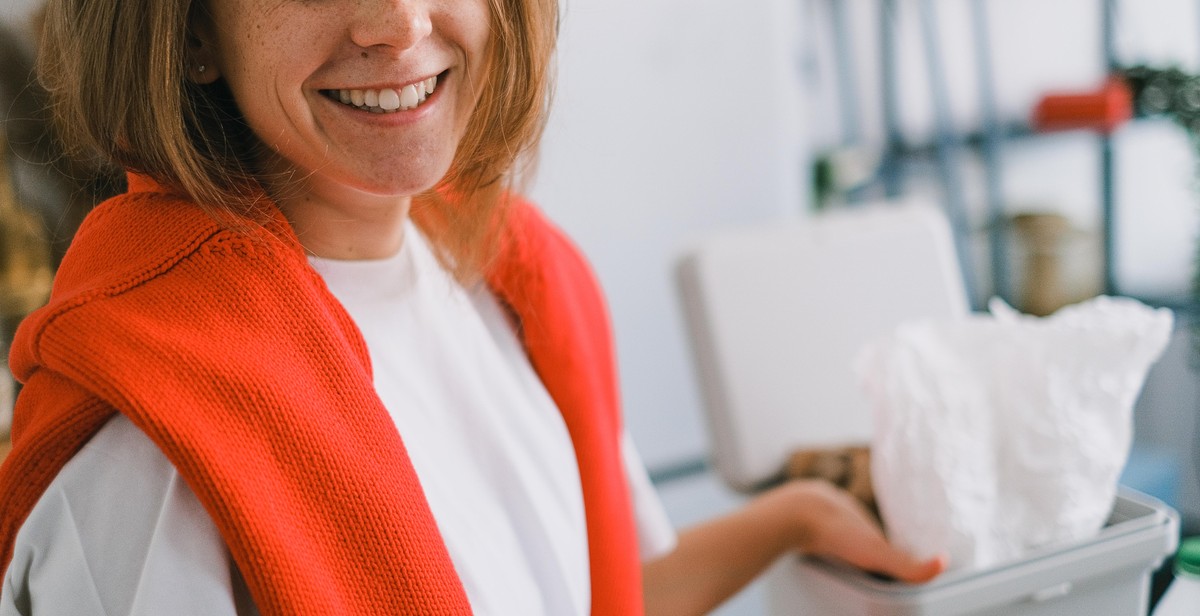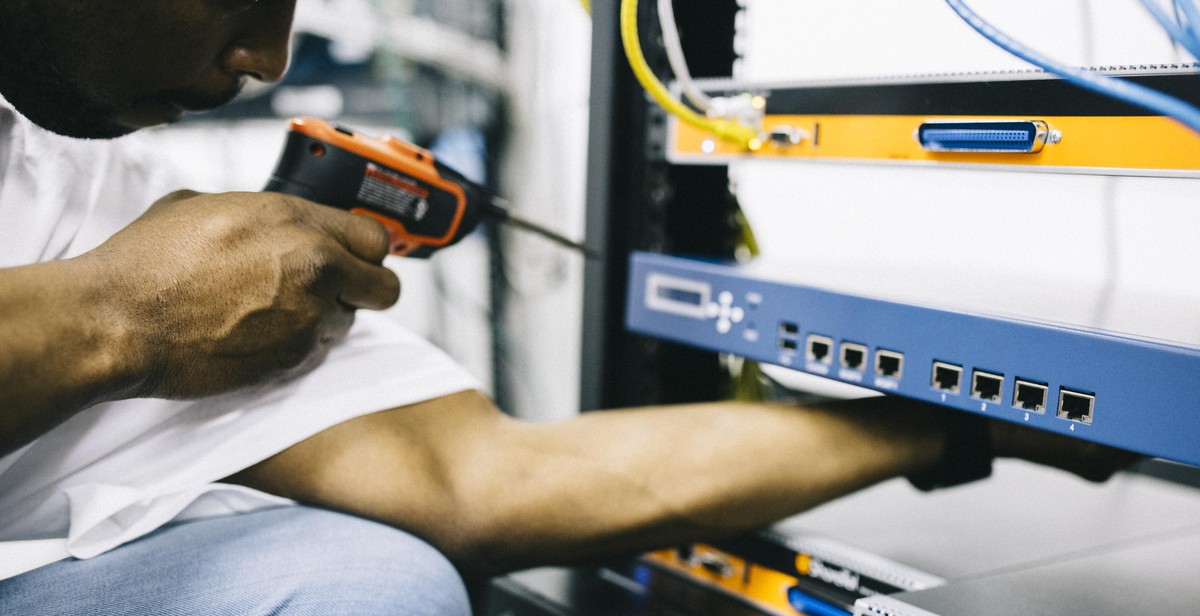Introduction: How to Start a Composting System in Your Backyard
Composting is the process of breaking down organic material into a nutrient-rich soil amendment. It is an easy and effective way to reduce waste while improving the health of your garden. Composting can be done on a small or large scale, making it a great option for backyard gardeners and urban dwellers alike.
Why Composting is Important
Composting is important for several reasons. First, it reduces the amount of organic waste that ends up in landfills. When organic material, such as food scraps and yard waste, decomposes in a landfill, it produces methane gas, a potent greenhouse gas that contributes to climate change. Composting this material instead allows it to break down naturally, without producing harmful gases.
Additionally, composting can help to improve soil health. Compost is full of nutrients and beneficial microorganisms that can help to enrich soil, improve drainage, and promote plant growth.
Benefits of Composting
- Reduces waste
- Improves soil health
- Reduces the need for chemical fertilizers
- Conserves water
- Reduces greenhouse gas emissions
Whether you are an experienced gardener or just starting out, composting is a great way to improve the health of your garden while reducing waste. In the following sections, we will discuss the basics of starting a composting system in your backyard, including what materials to use, how to maintain your compost pile, and how to use compost in your garden.

Getting Started with Your Backyard Composting System
Composting is an eco-friendly way to reduce waste and improve the soil quality in your backyard. Whether you have a small or large yard, you can create a composting system that will benefit your garden and the environment.
Choosing a Composting Method
The first step in starting a composting system is to choose a composting method. There are two main types of composting: hot composting and cold composting.
- Hot Composting: This method involves creating a pile of organic materials that heat up to high temperatures, which speeds up the decomposition process. Hot composting requires more effort and maintenance, but it produces compost faster.
- Cold Composting: This method involves creating a pile of organic materials that decompose slowly over time. Cold composting requires less effort and maintenance, but it takes longer to produce compost.
Selecting a Composting Bin
Once you have chosen a composting method, you need to select a composting bin. There are many types of composting bins available, including:
- Wire Mesh Bins: These are simple and inexpensive bins made of wire mesh. They are easy to assemble and allow for good air circulation.
- Plastic Bins: These are more durable than wire mesh bins and come in various sizes and shapes. They are also easy to assemble and maintain.
- Tumbler Bins: These are bins that can be rotated, which helps to speed up the composting process. They are more expensive than other types of bins, but they are also more efficient.
Preparing Your Composting Bin
Before you start composting, you need to prepare your composting bin. This involves:
- Placing your bin in a convenient location that is easily accessible.
- Adding a layer of twigs or straw at the bottom of the bin to promote drainage and air circulation.
- Adding a layer of brown materials (such as dead leaves, twigs, and shredded newspaper) on top of the twigs or straw.
- Adding a layer of green materials (such as kitchen scraps, grass clippings, and fresh leaves) on top of the brown materials.
- Adding water to moisten the materials, but not so much that they become soggy.
- Repeat steps 3-5 until your bin is full.
What to Compost
You can compost a variety of organic materials, including:
| Brown Materials | Green Materials |
|---|---|
| Dead leaves | Kitchen scraps (fruits, vegetables, coffee grounds, tea bags) |
| Twigs | Grass clippings |
| Shredded newspaper | Fresh leaves |
| Cardboard | Eggshells |
Avoid composting meat, dairy products, and oily foods, as these can attract pests and create unpleasant odors. Also, avoid composting weeds that have gone to seed, as the seeds can survive the composting process and spread in your garden.
Now that you know how to get started with your backyard composting system, it’s time to start composting! With a little effort and patience, you can create nutrient-rich compost that will help your garden thrive.

Maintaining Your Composting System
Starting a composting system is one thing, but maintaining it is another. To ensure that your compost pile is healthy and productive, you need to take proper care of it. Here are some tips on how to maintain your composting system:
Turning Your Compost Pile
Turning your compost pile is essential to maintaining a healthy composting system. This process helps to aerate the pile, which allows for the proper breakdown of organic matter. Turning the pile also helps to distribute moisture evenly throughout the pile, which helps to prevent dry pockets from forming.
Experts recommend turning your compost pile every two to three weeks. However, if your pile is not heating up or breaking down as quickly as it should, you may need to turn it more frequently. When turning your compost pile, be sure to mix the outside materials into the center and the center materials to the outside. This process helps to ensure that all of the materials are breaking down evenly.
Monitoring Moisture Levels
Moisture is essential to the composting process, and it’s important to maintain the right level of moisture in your compost pile. If your compost pile is too dry, it will not break down properly, and if it’s too wet, it will become anaerobic, which means it will break down more slowly and produce an unpleasant odor.
The ideal moisture level for a compost pile is around 50%. To maintain this level of moisture, you may need to add water to your compost pile during dry periods or cover it during periods of heavy rain. You can also monitor the moisture level of your compost pile by squeezing a handful of compost. If water drips out, your pile is too wet, and if it crumbles, it’s too dry.
Adding Compost Activators
Compost activators are materials that help to speed up the composting process by adding beneficial microorganisms to your compost pile. These microorganisms help to break down the organic matter more quickly, which results in a faster and more productive compost pile.
Some common compost activators include manure, grass clippings, and garden soil. You can also purchase commercial compost activators from your local garden center. When adding compost activators to your pile, be sure to mix them in thoroughly to ensure even distribution.
Conclusion
Maintaining a healthy composting system requires regular attention and care. By turning your compost pile, monitoring moisture levels, and adding compost activators, you can ensure that your compost pile is healthy and productive. With a little effort, you can turn your organic waste into a nutrient-rich soil amendment that will benefit your garden for years to come.

Using Your Compost
Once your compost has decomposed and turned into a dark, crumbly, earthy-smelling material, it’s ready to use in your garden. But how do you use it effectively? Here are some tips:
When is Your Compost Ready?
The amount of time it takes for your compost to be ready depends on a variety of factors, including the size of your compost pile, the materials you’ve added, and the weather conditions in your area. In general, you can expect your compost to be ready in 2-6 months.
How to Use Your Compost
There are many ways to use your compost in your garden:
- Mix it into the soil when planting new plants or seeds
- Spread it on top of the soil as a mulch
- Use it to make compost tea to fertilize your plants
- Top-dress your lawn with it
Compost is a great addition to any garden because it adds nutrients to the soil and helps retain moisture. It can also improve soil structure, which can lead to healthier plants and increased yields.
Tips for Using Compost in Your Garden
Here are some tips for using compost in your garden:
- Make sure your compost is fully decomposed before using it in your garden.
- Don’t use too much compost at once. A little goes a long way.
- Spread your compost evenly over the soil to avoid clumping.
- Water your compost after applying it to help it settle into the soil.
| Do | Don’t |
|---|---|
| Use a variety of materials in your compost pile | Add meat, bones, or dairy products to your compost pile |
| Turn your compost pile regularly | Let your compost pile dry out completely |
| Keep your compost pile moist | Add weeds or diseased plants to your compost pile |
By following these tips, you can use your compost effectively and enjoy a healthier, more productive garden.
